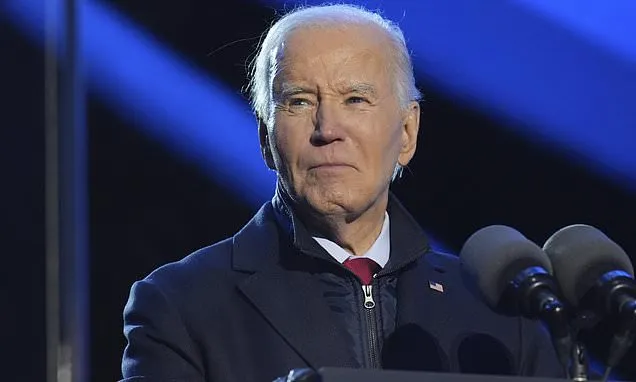WASHINGTON (AP) - President Joe Biden is weighing whether to issue sweeping pardons for officials and allies who the White House fears could be unjustly targeted by President-elect Donald Trump's administration. This preemptive move would be a novel and risky use of the president's extraordinary constitutional power.
The deliberations so far are largely at the level of White House lawyers. However, Biden himself has discussed the topic with some senior aides, according to two people familiar with the matter who spoke on condition of anonymity Thursday to discuss the sensitive subject. No decisions have been made, and it is possible Biden opts to do nothing at all.
Pardons are historically afforded to those accused of specific crimes - usually those who have already been convicted - but Biden's team is considering issuing them for those who have not even been investigated or charged. They fear Trump and his allies could launch investigations that would be reputationally and financially costly for their targets even if they don't result in prosecutions.
"While the president's pardon power is absolute, Biden's use in this fashion would mark a significant expansion of how they are deployed," said one source familiar with internal discussions.
Recipients could include infectious-disease specialist Dr. Anthony Fauci, instrumental in combating the coronavirus pandemic, among others like witnesses in Trump's trials and Biden administration officials who might draw ire from Trump.
"Some fearful former officials have reached out to the Biden White House preemptively seeking some sort of protection from the future Trump administration," noted an insider.
This follows Biden's decision to pardon his son Hunter for federal offenses over an 11-year period due to concerns about potential prosecution by Trump allies. This could serve as a model for other potential pardons under consideration.
Biden isn't alone; previous administrations considered similar actions. Gerald Ford granted a "full, free, and absolute pardon" in 1974 to Richard Nixon over Watergate concerns about divisive debates post-trial.
"On the campaign trail, Trump made no secret of his desire to seek revenge on those who prosecuted him or crossed him," observed political analysts following recent developments.
Richard Painter stated he was reluctantly supportive: "It's not an ideal situation at all... We have a whole lot of bad options confronting us at this point."
The Supreme Court ruled that presidents enjoy broad immunity from prosecution regarding official acts; however, aides do not share this shield. Concerns linger that Trump's promise of blanket pardons might embolden unlawful conduct among allies during his tenure.
"There could be blatant illegal conduct over the next four years... But if he's going to do that anyway regardless of what Biden does," Painter added reflecting on potential outcomes under Trump's leadership.
More conventional pardons from Biden addressing sentencing disparities for federal crimes are expected before year's end according to White House statements.
